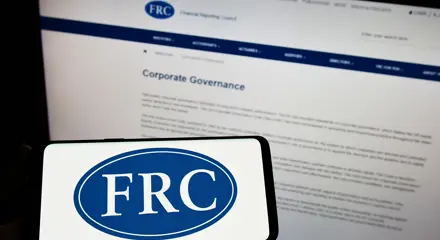
Blog
The Institute's Response to the UK Stewardship Code Consultation
The Financial Reporting Council (FRC) has finished consulting on its proposed changes to the Code. The UK Stewardship Code sets a standard for how investors manage their responsibilities and aims to ensure that investment decisions drive long-term value and create positive societal outcomes.


Blog
The FRC's First Thematic Review of Mandatory Climate-Related Financial Disclosures prepared by AIM-Listed and Large Private Companies
The Financial Reporting Council (FRC) recently reviewed the first mandatory Climate-related Financial Disclosures (CFD) prepared by AIM-listed and large private companies.






Blog
How do you design the composition of your board?
Loretto Leavy and Ruth Sealy from the University of Exeter Business School help us understand better behavioural dynamics on boards and how behavioural dynamics processes can drive positive change. This article highlights how to design the composition of your board.


